Ume-play and Karakusa-play ceramics by Nendo
Product news: Japanese studio Nendo has created a range of porcelain with patterns that play on archival designs from a traditional Japanese pottery.
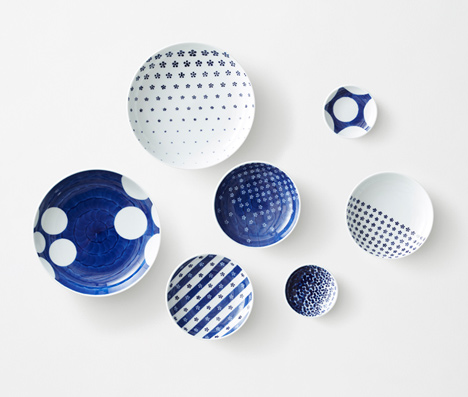
The Ume-play and Karakusa-play collections by Nendo were created in collaboration with Gen-emon, a 260-old ceramics company located in Arita, the Japanese town famed for its potteries in the Saga Prefecture on the northern part of Kyushu island.
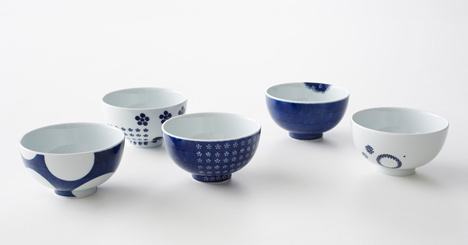
The process involved a re-editing of one of the firm's most well known patterns, a small plum-blossom repeat known as ume komon.
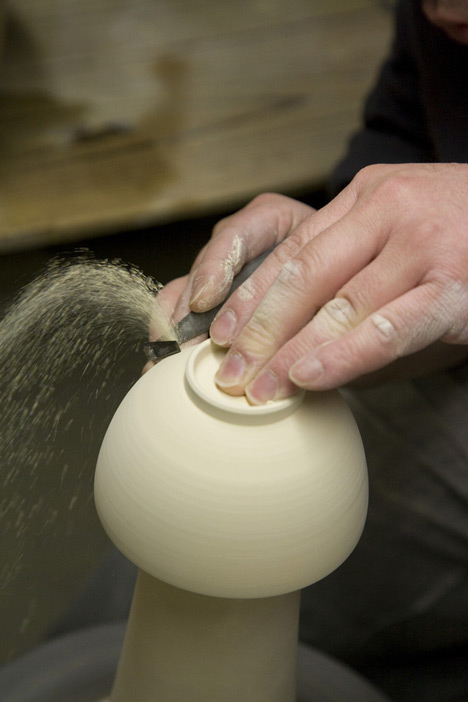
The ceramics also play with the traditional foliage scrollwork known as kara-kusa-e.
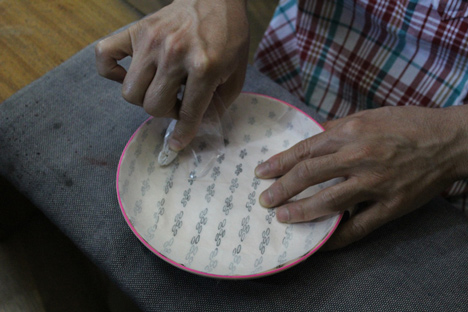
The process involved enlarging and re-arranging the original patterns by cutting them up, turning them upside down and layering the shapes.
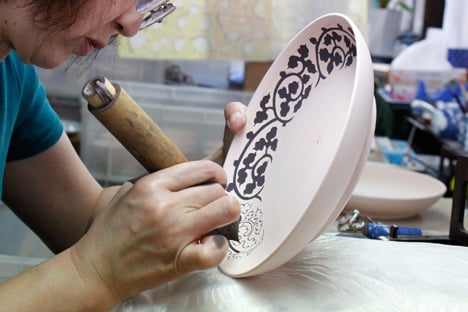
The resulting pieces seem to have an eclectic mix of patterns at first glance but are tied together by the same basic shapes and the kiln's identity of blue and white underglaze with contrasting dark and light blues.
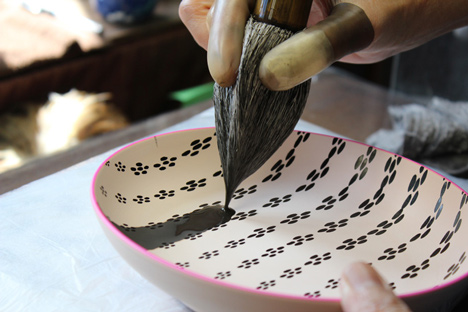
The traditional porcelain method was also reinterpreted by introducing a charcoal-based resist method called sumi hajiki, in contrast to the usual way of filling in outlines. This method allowed for finer lines and reduced cost.
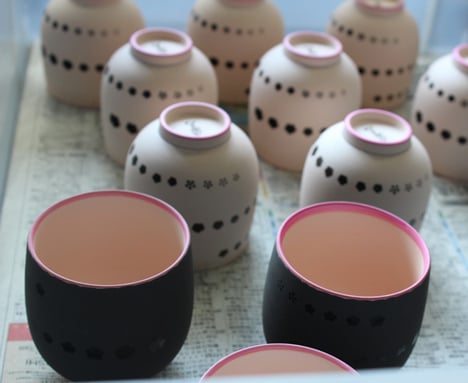
The ceramics will be sold at Seibu department stores in Japan from 22 October 2013.
See more ceramics »
See more work by Nendo »
Photos by Akihiro Yoshida.
Some words from the designer:
Ume-play and Karakusa-play
Gen-emon is one of the most renowned Arita-yaki porcelain kilns, with a 260-year history dating to 1753.
We undertook an unorthodox re-edit of one of the kiln’s most famous patterns, a small plum flower repeat known as ‘ume komon’ and foliage scrollwork known as ‘karakusa-e’.
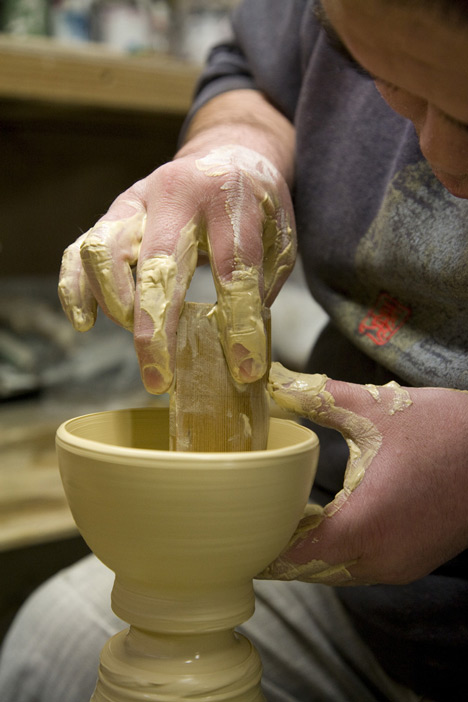
Like children playing with paper, we blew up the pattern until it was enormous, as though viewed through a magnifying glass.
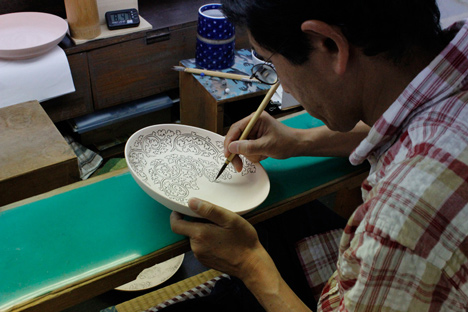
We cut it up with scissors, pasted it, lined it up, turned it upside down and layered it, too.
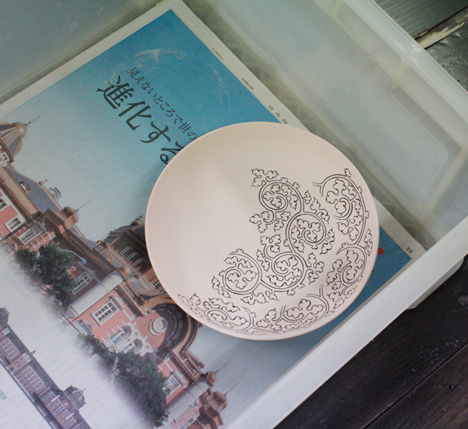
This faux-naïve strategy allowed us to activate Gen-emon’s key visual signifiers – the blue and white underglaze and strong contrast between the dark and light blues – while developing a rich assortment of variations.
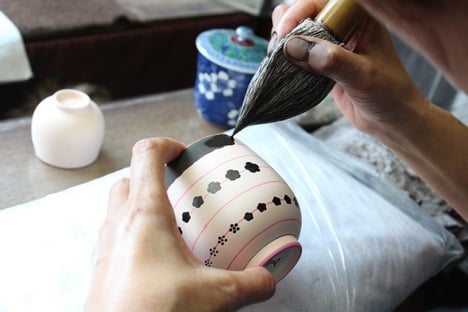
The result: a delightful selection of ceramics that may have different patterns, but can be used together on the table without breaking visual unity.
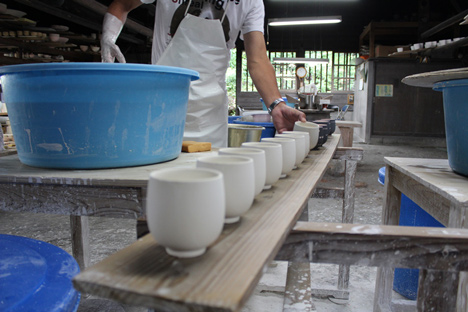
Traditionally, Gen-emon’s porcelains are made by drawing the outlines, then filling in the centre.
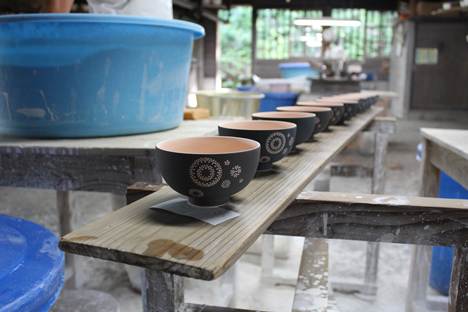
We introduced a charcoal-based resist method, ‘sumi hajiki’, that allows both fine lines and an accessible price for the consumer.
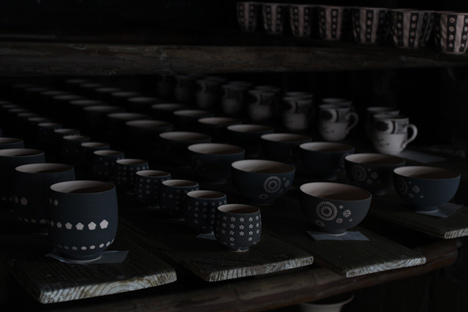
The ume-play collection upholds Gen-emon’s long history and traditions and reflects the kiln’s commitment to constant change and evolution.